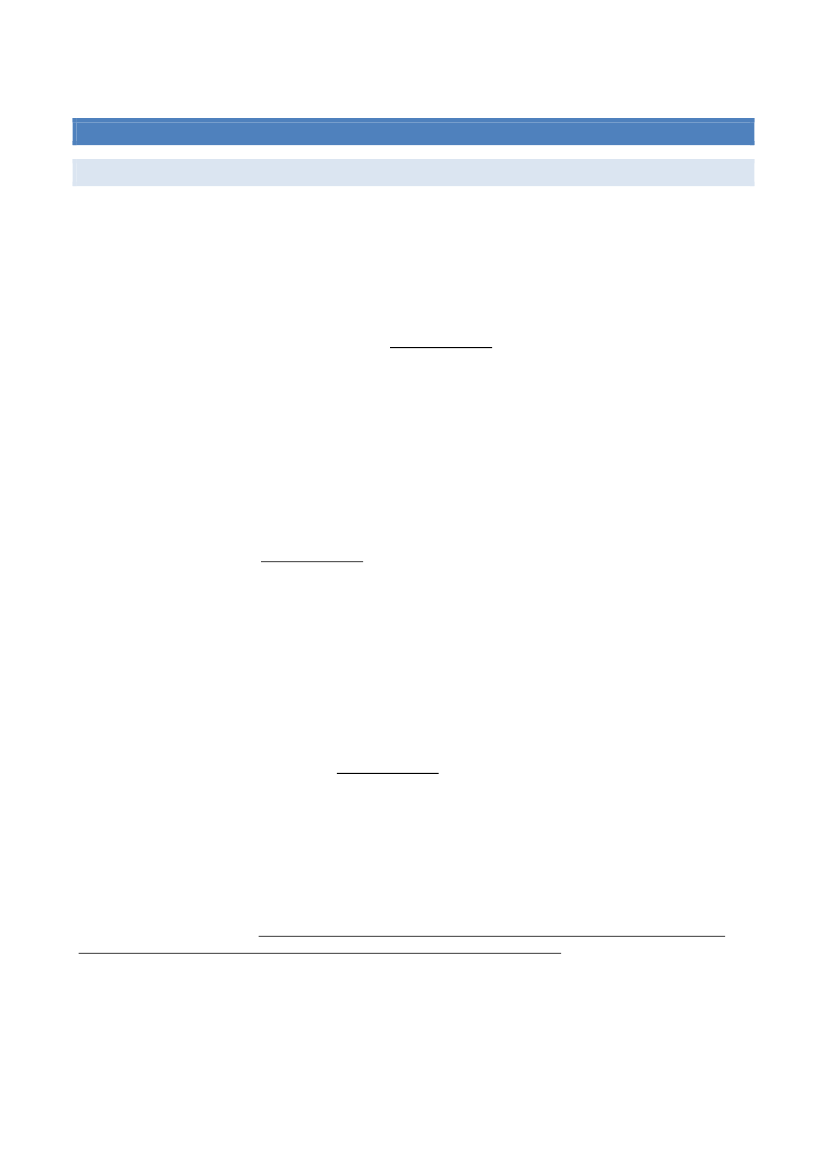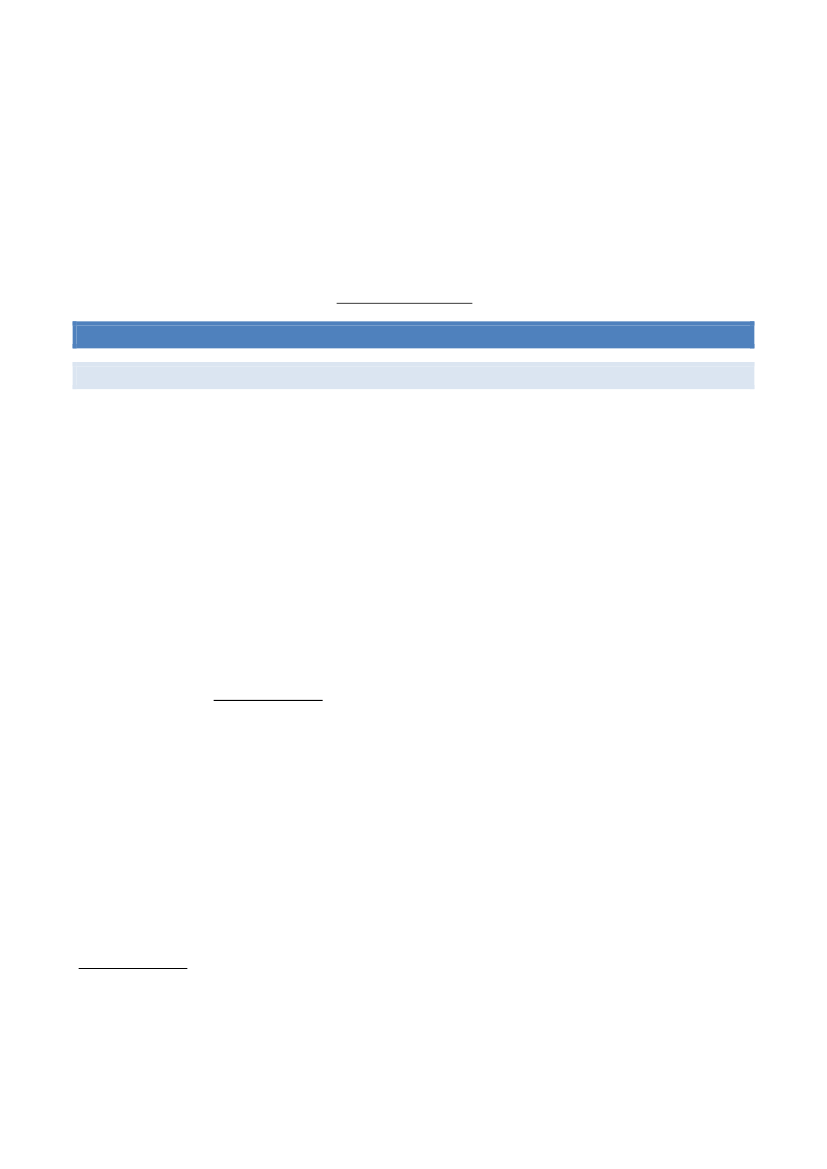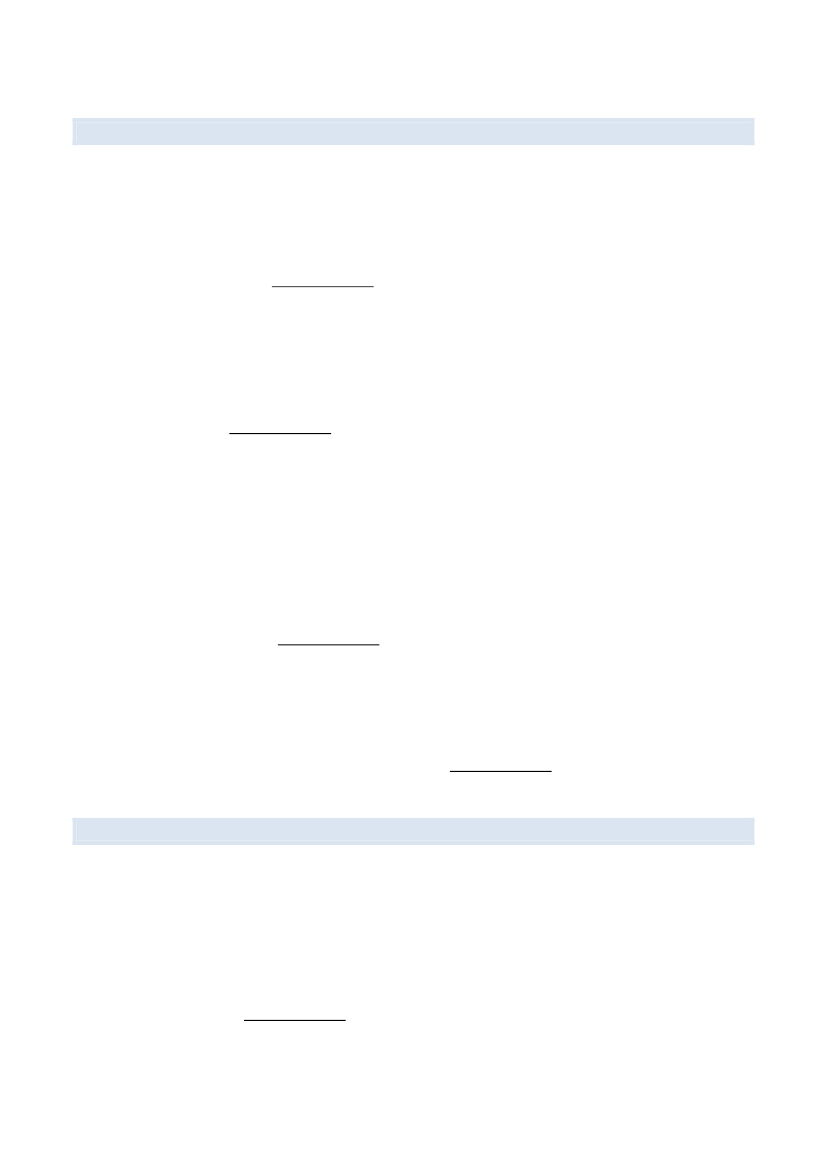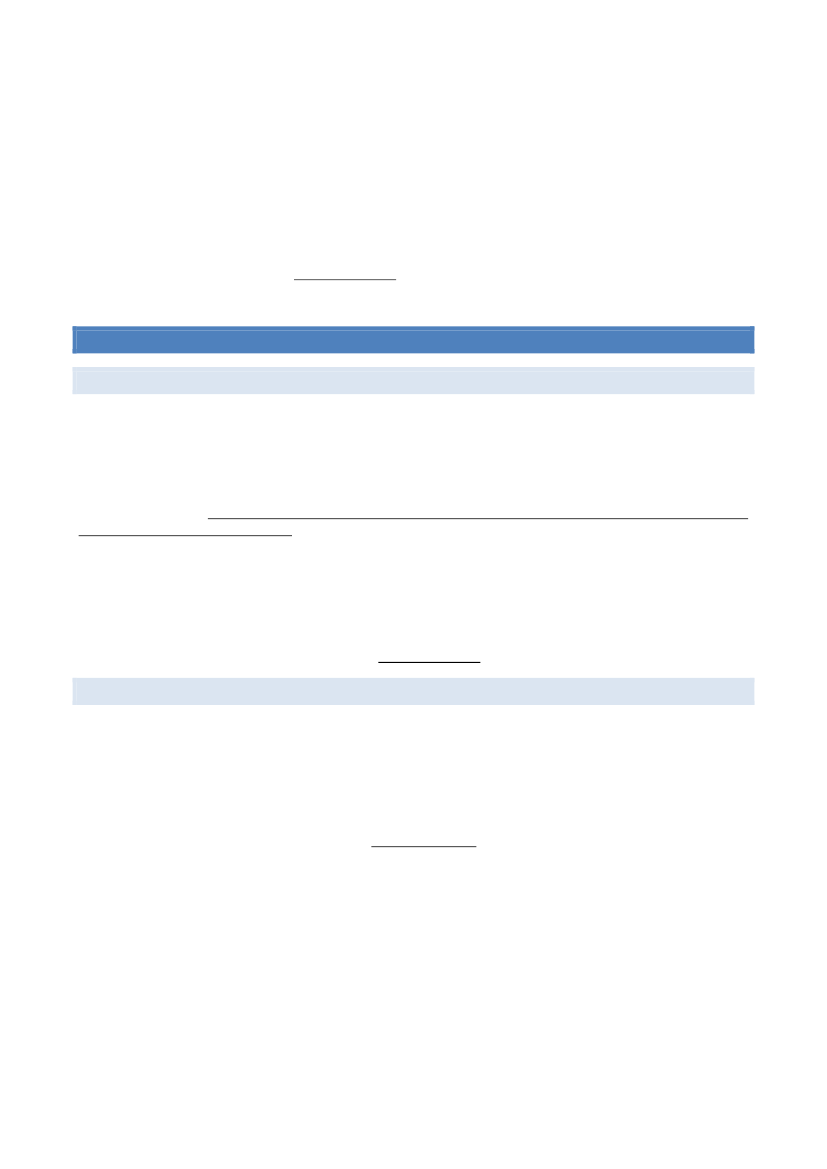Forsvarsudvalget 2013-14
FOU Alm.del Bilag 63
Offentligt
DE FORSVARS– OG SIKKERHEDSPOLITISKE STUDIER VED DIIS 2014
DIIS gennemfører hvert år en række forsvars- og sikkerhedspolitiske studier, finansieret over FolketingetsForsvarsforlig og forvaltet af Forsvarsministeriet. Studierne belyser spørgsmål af både aktuel og langsigtetrelevans på globalt, transatlantisk, europæisk og dansk niveau. Målet er at levere tværfaglig og velformidletviden ikke blot til andre forsvars- og sikkerhedspolitiske forskningsmiljøer, men også til praktikere,politikere og offentligheden.DIIS har i 2013 fået ny struktur med oprettelse af fem nye forskningsafdelinger:1. International Sikkerhed,2.Fred, risiko og konflikt, 3. Udenrigspolitik, 4. Global regulering 5. Naturressourcer.Den årlige projektplan forde Forsvars- og Sikkerhedspolitiske Studier vil fremover trække bredt på ekspertise fra alle femforskningsafdelinger. Det sker i erkendelse af, at spørgsmål om forsvar og sikkerhed i stadigt stigende gradhænger sammen med spørgsmålene om udvikling og opbygning, ressourcer og geografi, det globale og detlokale. Samtidig sikrer en tværgående fordeling af de Forsvars- og Sikkerhedspolitiske midler, at DIIS fra årtil år kan justere kompasset i forhold til verdens brændpunkter. Flytter verdenspolitikkens fokus fraMellemøsten til Afrika, fra NATO til FN, eller fra flygtningestrømme til masseødelæggelsesvåben, giver denfleksible og brede fordeling os optimale muligheder for at tilbyde analyser, der flytter med.Den udvidede bredde fremgår også af årets projektplan. Det falder i fire overordnede ’temapakker’:PAKKE 1: DANMARK, NO RDEN, RIGSFÆLLESSKAB ET OG ARKTISPAKKE 2: EUROPÆISKE OG GLO BALE SIKKERHEDSDYNAM IKKERPAKKE 3: SKRØBELIGE STATER OG VERDENS BR ÆNDPUNKTERPAKKE 4: VÅBENKONTRO L OG –TEKNOLOGI
Nedenfor følger en præsentation af de projekter og produkter DIIS i 2014 forpligter sig på at levere over deforsvars- og sikkerhedspolitiske midler. Under alle projekter er angivet konkrete output, samt et estimerettimeforbrug. Fælles for alle projekter – uanset output – er, at vi i det kommende år vil tilstræbe meremundtlig formidling til, og dialog med, både embedsværk og politiske ordførere. Vi vil i den sammenhængogså tilstræbe at de skriftlige produkter, der har mest direkte og aktuel policy-relevans, leveres i så kort ogtilgængeligt et format som muligt. Endelig har de Forsvars- og Sikkerhedspolitiske Midler fået deres egetsite på DIIS hjemmeside. Gennem 2014 vil vi på dette site udvikle og opgradere web-formidlingen af voresprojekter markant. Af samme årsag ansættes der i 2014 en egentlig administrativ medarbejder påmidlerne.
1
PAKKE 1: DANMARK, NORDEN, RIGSFÆLLESSKABET OG ARKTISDANSK FORSVAREr specialstyrker vejen frem for dansk forsvar? /Jon Rahbek Clemmensen / Anders Henriksen KU / FAKSpecialstyrker har i det seneste årti fået en central rolle i Vestens brug af væbnet magt, herunder ikke mindst i denamerikanske tilgang til militære operationer i Afghanistan, Irak, Pakistan, Yemen og Somalia. Dette projekt kortlæggerden øgede anvendelse af specialstyrker, og undersøger de muligheder og udfordringer, der er forbundet med en øgetanvendelse af specialstyrker i det danske forsvar. Projekter kigger ikke blot på snævre militære fordele og ulemper,men i høj grad også på politiske, juridiske og mediemæssige aspekter.Output: Rapport, fælles konference med FAK/ Jura, KU.Timeforbrug: 400.Dansk forsvars brug af tolke: Politiske, juridiske og etiske perspektiver /Sine Plambech & Ninna Nyberg SørensenForsvaret har siden 2001 anvendt tolke i forbindelse med indsatsen i Afghanistan og Irak. Dette projekt undersøger depolitiske, juridiske og etiske udfordringer, der knytter sig til anvendelsen af tolke – både i et tilbageskuende og etfremadrettet perspektiv. Projekter sætter dansk praksis og danske udfordringer ind i en større komparativsammenhæng, ved blandt andet at kigge på hvordan man i lande som Storbritannien har valgt at gribetolkeansættelser an. Projektet vil forsøge at danne overblik over forskellige typer af tolkeanvendelser, herunder ogsåinddrage et kønsperspektiv på de særlige problemstillinger, der knytter sig til brug af kvindelige tolke. Projektets afsæter antropologisk og vil således også ibelyse problemstillingen fra en vinkel der inddrager tolkenes eget perspektiv.Projektet vil munde ud i en række konkrete overvejelser om Danmarks fremtidige praksis på området.Output: Brief, praktikerseminar.Timeforbrug: 300.Danmark og FN’s fredsoperationer /Louise Riis AndersenFN udgør fortsat en hjørnesten i dansk forsvars- og sikkerhedspolitik. FN leverer den overordnede ramme oglegitimitet for de internationale militære interventioner, som Danmark bidrager til, og Danmark støtter aktivt FN’sarbejde med udvikling af internationale normer vedrørende magtanvendelse og fredsopbygning. Dette projekt søgerat belyse de fremadrettede vilkår, perspektiver og begrænsninger, der rejser sig i forhold til en mere aktiv danskdeltagelse i FN-ledede operationer. Projektet søger at opdatere, revitalisere og kvalificere den offentlige debat omFN’s placering i dansk forsvars- og sikkerhedspolitik. Som led heri vil der være fokus på, hvordan FN som organisationhar udviklet sin tilgang til fredsoperationer i de seneste ti år. Projektet gennemføres i samarbejde med Peter ViggoJakobsen, FAK.Output: Seminar, akademisk artikel, netværk.Timeforbrug: 400.Danmark i amerikansk udenrigspolitik / Mikkel RungeDet stærke dansk-amerikanske bånd har spillet en stor rolle for skiftende danske regeringer – røde som blå – sidenDanmarks indtræden i NATO i 1949. Derfor er det heller ikke overraskende at hensynet til USA spiller en betydeligrolle i de sidste 65 års dansk udenrigspolitisk tænkning. Men hvad tænker amerikanerne egentlig om Danmark? Oghvilke indenrigspolitiske tendenser i amerikansk politik er særligt vigtige for Europa og Danmark? Det afdækker detteprojekt op til det amerikanske midtvejsvalg i november 2014.Output: 3 kroniklængde bidrag.Timeforbrug: 200. Projektet trækker på Mikkel Runges 3-årige post.doc projekt omamerikansk-danske relationer, finansieret af Forskningsrådet for Samfund og Erhverv.
2
RIGSFÆLLESSKABET, NORDEN OG ARKTISArktis og Norden / Mikkel RungeDette projekt følger op på et 2013-projekt om nordisk udenrigspolitik, men med særligt fokus på nordisk Arktis-politik.Der er sket et betydeligt skift i prioriteringen af Arktis i dansk og nordisk samfundsvidenskabelig forskning den senestetid - et væld af nye projekter springer frem – og projektet har således til hensigt dels at kortlægge hvad den nyeforskning allerede kan, og hvad man med danske og nordiske sikkerhedsbriller stadig mangler at blive klogere på.Projektet gør således både status og tegner et fremadrettet afsæt for sikkerhedspolitisk forskning om Arktis på DIIS. Iden sammenhæng har projektet til hensigt at styrke DIIS’s Arctic Working Group gennem centrale netværkselementer,så som international konferencedeltagelse.Output: 1 policy brief; 1 afrapporteringsrapport fra 2013-konference om nordisk udenrigs- og sikkerhedspolitik;boglancering dansk-svensk bogprojekt om de nordiske landes arktispolitik; seminarrække med eksterne talere i DIIS’sArctic Workgroup regi.Timeforbrug: 300.Nye Globale Arktis-Strategier: Danske Samarbejdsmuligheder i Det Høje Nord / Jon Rahbek-ClemmensenArktis fortsætter med at have en høj plads på den internationale sikkerhedsagenda. Storbritannien og USA har senestudarbejdet strategier for deres indsats i regionen, mens EU og Kina endnu er længere bagud i processen. Dette projektundersøger indholdet af disse nye strategier, hvordan stormagternes ageren kan påvirke regionens institutionellestruktur, samt hvilken rolle Danmark kan spille i denne proces.Output: 1 policy brief; en række offentlige seminarer og kronikker.Timeforbrug: 300 timer.Governing Greenland’s Uranium / Cindy Vestergaard /Gry ThomasonThis project has a dual purpose. Firstly, it aims to put debates over Greenland’s mining of uranium and the role of‘Rigsfællesskabet’ in governing that process in historical context. Based on archival research (including the‘Selvstyrekommision’ of 1987), the project will evaluate the historical documentation behind the ‘zero tolerancepolicy’ on mining radioactive elements in Greenland. Secondly, it aims to put the governance of Greenland’s uraniuminto cross-comparative perspective, investigating two of the world’s top three producers of uranium – Kazakhstan andAustralia – and how lessons learned from their governance can help shape DK-GL legislative and policy approaches tothe production of uranium in Greenland. This part of the project investigates environmental, safety and security ‘bestpractices’ as applied by the uranium industry, bringing GL and DK officials together, building bridges and awarenessacross the Realm on uranium production and trade. The focus will lean toward environmental issues which Track IIefforts have not focused on to date. The project conference will be conducted in collaboration with the AustralianUranium Association (AUA).Output: 2 working papers, 1 rapport, track II seminarrække, en række kronikker og DIIS Comments. Projektet ermedfinansieret af The MacArthurfoundation, der også finansierer opbygningen af en GoverningUranium-hjemmeside.Gry Thomason er medforsker på projektet, men hovedsaligt finansieret af en to-årig bevilling fra CarlsbergFondet.Timeforbrug: 400.Non-proliferation: Can the Nordic Countries strengthen the regime? /C. Vestergaard/ M.D. Cohen, SDUFinland is building its third nuclear power plant, making it the first Western European country in 15 years to order one,and has also recently begun mining uranium as a byproduct of its nickel production. At the same time, Greenland andDenmark are considering exploiting what potentially may be the world’s fifth largest uranium reserve in southernGreenland. The Nordic non-proliferation imperative therefore faces new challenges to be consistent with the rightsand interests of all states to participate in legitimate international nuclear trade at a time when nuclear proliferationpressures are increasing. This project examines the scope for joint Nordic action on non-proliferation at a time wherethe nuclear landscape in the region is shifting. More specifically it asks: How can the Nordic countries capitalize on
3
their new mineral wealth, geo-strategic location and common membership in the IAEA, Arctic Council, and theEuropean Atomic Energy Community (Euratom), in order to further strengthen the non-proliferation regime?Output: Seminarrække, løbende analyser og kommentarer.Timeforbrug: 200.
PAKKE 2: EUROPÆISKE OG GLOBALE SIKKERHEDSDYNAMIKKEREUROPAThe interplay between Danish and EU foreign and security policy after the Lisbon Treaty /Christine NissenPartly in response to the economic crisis, there exists an increasing wish in many European states to furthercollaborate on security and defense in an EU framework. Since the EU foreign policy structures have beenconsiderably strengthened in a Post-Lisbon Treaty context, we also have a stronger institutional system that mightopen up for possibilities of having a fruitful cooperation in this regard. This project will examine the relationshipbetween Danish and EU foreign and security policy, focusing especially on how the development of the CommonSecurity and Defense policy (CSDP) is affecting the Danish options in light of the Danish opt-out on Defense.Output: Rapport, seminar.Timeforbrug: 300.Germany in the World: Looking Ahead /Fabrizio Tassinari & Stefano Guzzini /The German Marshall FundThe German Foreign Ministry have commissioned the German Marshall Fund and our sister institute in Berlin – theSWP –by to conduct a year-long project on “Elements of a strategy for German foreign policy”. Our aim is to presentthe result of this project, together with the main authors, in two separate events, specifically designed for particularaudiences: One for policy makers and one for a more general audience.Output: 1 akademisk konference, 1 praktikerseminar. Timeforbrug: 200.Rusland og den Europæiske Sikkerhedsarkitektur /Karsten J. MøllerRusland ser kritisk på sikkerhedsarkitekturen i Europa, som den har udviklet sig efter Den Kolde Krigs ophør. For detførste anser Rusland sig ikke for at være tilstrækkeligt inkluderet i den europæiske sikkerhedsstruktur ogbeslutningsgang. For det andet har Rusland ved forskellige lejligheder lanceret initiativer, der sigter på at ændre denuværende sikkerhedsmekanismer i det Euro-atlantiske område. Dette projekt undersøger en række forskelligetendenser i russisk udenrigspolitik med relevans for, hvordan Dansk Forsvar kan anskue Ruslands prioriteterfremadrettet.Mest væsentligt analyseres Ruslands forsøg på at ændre på den europæiske sikkerhedsarkitektur, samtden vestlige verdens reaktion herpå.Dernæst undersøges Ruslands ambition om at knytte de tidligeresovjetrepublikker (eksklusive de tre baltiske) sammen i en såkaldt Eurasisk Union. For det tredje tages der bestik afsituationen i Centralasien, hvor en række lande nøje må afveje deres økonomiske og sikkerhedspolitiske prioriteter irelation til de to store naboer: Kina og Rusland. Endelig sætter projektet også fokus på Ruslands Arktis-politik.Output: Rapport, artikel, kronikker.Timeforbrug: 600.
INTERNATIONALE ORGANISATIONER‘Partnerships’ as a governance tool for Western leadership? /T. Flockhart‘Partnerships’ is now an established NATO tool of security governance. This project aims at a) theorizing the pro’s andcon’s of ‘partnerships’ as an instrument of security policy, as well as b) discussing the value of ‘partnerships’ as an toolof Western leadership and rule based order beyond the realm of NATO. Is ‘partnerships’ a policy of value to otherWestern trade and security institutions too? And if so, what are the practical implications in terms of making these
4
institutions capable of providing the kind of capacitybuilding needed. The project is intended to provide both shortterm policy relevant and long term theoretical output.Output: Brief, seminar.Timeforbrug: 160.
GLOBAL SIKKERHEDChina, Energy Security and Global Challenges /Luke PateyThe rapid increase of China’s energy trade and investment, particularly in oil, has elevated its foreign economic andpolitical impact in both developing and developed countries. The impact of these engagements have been regarded asa security challenge by OECD countries because Chinese oil companies are national-owned and perceived to be adirected by the Chinese government. At the same time, China’s energy investments can reshape the political economyof developing countries, providing both the opportunity for economic development, but also internal political divisionand conflict. This project will explore the geopolitics of China’s growing international energy demand as a non-traditional security challenge for Denmark and other OECD countries. As such, the project aims to build a betterunderstanding of the nature, direction, and scope of China’s global energy strategy and disentangle the motivationsbehind different actors, such as Chinese national oil companies, involved in energy policy formation within theChinese government.Output: 1 policy brief, 1 workshop, 1 seminarrække, 1 akademisk artikel.Timeforbrug: 400.China as a Global Player? Chinese Soft Power in Africa, the Arctic and the Persian Gulf/ L. E. Andersen /Y. Jiang/L.Patey/ H. FengChina is rapidly enlarging investments across the globe. This work package includes projects on Chinese soft power(does it exist, and if so, what is its driving political impetus?) in Africa, the Arctic and the Persian Gulf. The projects willfocus both on economic, political and ideological dimensions to the Chinese projection of power. In the Africancontext, particular emphasis will be put on Chinese strategies of communication.Output: 2 rapporter, 1 seminarrække, kommentarer og kronikker.Timeforbrug 1200.Kina: En revisionistisk stat? /Andreas B. ForsbyKinas hastige opstigning tegner til at rumme det væsentligste forandringspotentiale for international politik i det 21.århundrede. Spørgsmålet er derfor ikke blot, hvilke sikkerhedspolitiske dynamikker Kinas opstigning vil afføde, menogså i hvilken udstrækning den nuværende internationale orden vil blive udfordret af Kina. Dette projekt undersøgerbetydningen af Kinas selvforståelse for udformningen af landets overordnede udenrigs- og sikkerhedspolitik efter DenKolde Krig. Timeforbrug: 1500.The Future of ‘Realism’ in US Foreign Policy /Michael C. Williams & Vibeke Schou TjalveTo the present American presidency, as well as to central actors in the US defence and security environment, a returnto ‘realism’ is now embraced as the obvious answer to global overstretch and economic crisis. At closer glancehowever, contemporary debates over US foreign policy contains many different ‘realisms’, with very different securityagendas and very different global implications. In the spring of 2014, DIIS will host one of the leading internationalexperts on realism and American foreign policy, Michael C. Williams, to embed him in a broader project on what toexpect of US defence and security strategy in the future, and the use and abuse of ‘realism’ in this connection.Output: Konference, løbende analyser og kommentarer, to bøger.Timeforbrug: 1000.Capacity development, the African Union and foreign donors /Peter Albrecht / Frederik RosénRecent research shows that capacity development carried out by donors in the Global North often fails to deliverintended resilient state institutions. This has led to a search for innovative ways of dealing with the capacity-gap that
5
makes up the core of state fragility, and a strengthened focus on south-south collaboration. From this perspective,and building on ongoing work at DIIS, the project will explore the role of the African Union in strengthening thecapacity of security sector institutions in its member countries. First, it will examine the African Union’s knowledgeand concepts of and attitudes towards south-south cooperation as well as its experiences with and lessons fromAfrican support to African security sector institutions.Second, the project explores the African Union’s perceptionsof and attitudes towards the role that organizations such as the EU has played in security sector capacitydevelopment.Output: Policy Brief series (3-5) clarifying policies, general practices, perceptions and practical experiences of theAfrican Union with regards to foreign donors.Timeforbrug: 700 timer.
PAKKE 3: SKRØBELIGE STATER OG VERDENS BRÆNDPUNKTERIKKE-STATSLIGE SIKKERHEDSAKTØREREastern Africa and Sahel: Local Security and External Intervention/L. Moe / K. Hoffman/ E. HohonauEastern Africa and the Sahel are regions of key importance for wider dynamics of both conflict and stabilization in Sub-Sahara Africa. Peacebuilding and stabilization efforts targeting these regions have increased over the past years, andinternational interveners are confronted with particularly complex and challenging environments. On this backdrop,contextual analysis of local security tendencies is critically important as a means for assessing the feasibility, ethicsand applicability of external humanitarian, development and capacity-building intervention. This project will thereforeexamine the key dynamics and tendencies with regards to local security provision and security challenges in easternAfrica (Somalia and DR Congo) and Sahel. The project will provide contextual analyses with particular attention to theroles of local non-state actors in security provision as well as in conflict dynamics. There is great variety among thekinds of non-state providers of security that exist. The way they operate (and the way they contribute to security aswell as insecurity) is shaped by a range of historical, socio-cultural and political factors, as well as by their relationshipswith state providers. The project will analyze the strengths and weaknesses of the different providers, and look intowhere and how they intersect. This will provide the basis for considering possibilities, challenges and dilemmas withregards to how international actors plan and implement programs in the context of peacebuilding and stabilization.Output: 1 Policy report med landestudier (Somalia, DR Congo, Sahel), 1 policy brief, 1 seminarserie, fireartikler/arbejdspapirer.Timeforbrug: 1500.Armed Non-State Actors: Disarmament, Demobilization and Peacebuilding/ Tovholdere: F. Stepputat /j. Munive.Projektdeltagere: H. Kyed / M. Sheikh/ T. Galasz / M. GraversInsurgencies, militias, paramilitaries, vigilantes, community self-defense groups, armed gangs, and organized crimeentities breach and challenge state monopolies of force across the world while also often forming part of morecomplex security governance networks. This work package will analyse and develop recommendations on the issue ofhow such Armed Non-State Actors (ANSAs) can be disarmed and ‘demobilized’, including the role of ‘soft’ issues ofidentity and organization. The work package will straddle situations of armed conflict as well as other situations ofarmed violence, focussing on 1) armed opposition groups (in particular in Myanmar and Afghanistan/Pakistan), and 2)other armed groups (including youth gangs, militias and vigilantes in South Sudan) that are of growing importance inthe security terrain.Output: 1 seminarserie; 1 policy brief; 1 tidsskriftsartikel; 1 workshop; et special issue af tidsskriftetStability.Timeforbrug: 1000.
6
POLITISKE DYNAMIKKERThe Middle East in turmoil /Helle Malmvig / Rasmus Boserup/ Janne ChristensenThe Middle East remains a region in turmoil. Throughout 2013 DIIS has hosted a seminar series on topical aspects ofthis process. This project continues that focus, aiming to provide both seminars and shorter, policy relevantpublications with perspectives on central security actors and dynamics in the Middle Eastern context. Particularattention will be devoted to Syria and Iran.Output: Seminarrække, kronikker.Timeforbrug: 160.Could regional powers (Iran, Saudi Arabia and Turkey) play a positive role in post-conflict Syria? /Helle Malmvig
The conflict in Syria has developed from an international to one of regional, even global, dimensions. Thisproject will examine if regional powers, who are currently abetting the dynamics of conflict in Syria – Iran, SaudiArabia and Turkey – may be brought to play a positive role in a potential post-conflict context. In tandem withdevelopments in Syria, the project aims at providing policy relevant analysis and recommendations.Output: Rapport, seminar.Timeforbrug: 300.After the Arab Revolts: Security Actors and Democratization in North Africa /R. Boserup/ P. Albrecht/ B. McQuinnIn the aftermath of the Arab Revolts, a diverse range of security actors continue to play a central role in policy-makingacross Arab North Africa. The question ofhowthey come to play this role is essential to our understanding of thescope for development and the potential for democratic change in North Africa. The aim of this project is thus to mapand analyze the role of four contemporary security actors: The armed forces, the police, the intelligence services, andcivil militias. Empirically, the project focuses on Morocco, Algeria, Tunisia, Libya and Egypt in the aftermath of the ArabRevolts. Analytically, it aims to provide both Danish and international decision makers with policy recommendationson how external actors might respond and support processes of democratization in Arab North Africa. The project willalso highlight the role of international institutions, not least of NATO and the UN.Output: Rapport, konference, bog.Timeforbrug: 800.Tilbagetrækningen af internationale styrker fra Afghanistan 2014 /Mona K. Sheikh / ISS, IslamabadI 2014 skal de internationale styrker trækkes ud af Afghanistan. Dette projekt undersøger effekten aftilbagetrækningen på Pakistans stammeområder. Projektet gennemføres i samarbejde med Institute for StrategicStudies (ISS), Islamabad.Output: Konference i Islamabad, co-finansieret af ISS, Islamabad.Timeforbrug: 160.
INTERNATIONALE NORMERR2P efter Syrien /Louise Riis AndersenSiden Verdenstopmødet i 2005 har diskussionen om, hvad det internationale samfund kan og skal gøre for at beskyttecivilbefolkninger mod massive overgreb fundet sted inden for rammerne af princippet om ’responsibility to protect’(R2P). Danmark har fra starten været fortaler for princippet og lagt vægt på det i forhold til dansk deltagelse iinternationale operationer (Forsvarsforliget 2013-17). Samtidig er der ikke mindst i lyset af krisen i Syrien stigendeuklarhed både i og udenfor FN om hvad princippet egentligt dækker over og kan bruges til. Projektet belyser dennediskussion.Output: Bogkapitel, seminar.Timeforbrug: 160.
7
Climate change, human security and rights-based approaches /Ian Christoplos and Mikkel FunderClimate change threatens human security in the South, and may contribute to existing conflicts over scarce resourcessuch as land and water. In order to address this complex issue, some civil society organisations argue that a rights-based approach is necessary. The essence of this approach is that citizens have a right to be protected against thedisruptive effects of climate change, and that governments have the duty to protect them. Focusing on securitydynamics in two case studies – Kenya and Cambodia –this study will critically examine “who has what duties andresponsibilities” for protecting citizens against climate change.Output: Brief, seminar, artikel, kronik.Timeforbrug: 400.
PAKKE 4: VÅBENKONTROL OG –TEKNOLOGIVÅBENKONTROLCFE og våbenkontrolregimerne /Karsten J. MøllerDette projekt ligger i direkte forlængelse af projektet om Rusland og den europæiske sikkerhedsarkitektur, mensætter direkte fokus på CFE og våbenkontrolregimerne. Mere specifikt zoomer projektet ind på den russiske kritik afden gældende europæiske sikkerhedsarkitektur og analyserer i det lys mulighederne for en revision af CFE-aftalen.Output: Arbejdspapir. Vi tilstræber desuden at ansatte yderligere kompetence, der kan løfte rapporter og offentligdebat på området.Timeforbrug: 300.CWC, Syria and the broader region /Cindy VestergaardIn all likelihood, Syria’s chemical weapons will remain on the top of the international security agenda well into 2014.This project provides up-to-date analysis of Syria’s chemical weapons, the Chemical Weapons Convention (CWC), andhow the next 6-12 months play out!Output: Seminar, løbende analyser og kommentarer.Timeforbrug: 300.
NYE TEKNOLOGIERCyber security: Challenges Ahead / M. Crone / J. T. Jacobsen/ Kenn Moss NDUCyberspace has come to be viewed as a potential threat to national security. Governments all over the worldconsequently allocate large amounts of money to cyber-security measures. Involved in this, are considerations on howto prioritize offensive and defensive measures. This project aims at providing knowledge on the benefits, but also thepotential costs of prioritizing offensive cyber measures over defensive measures.Output: To briefs, en række seminarer og kronikker.Timeforbrug: 300.
8








